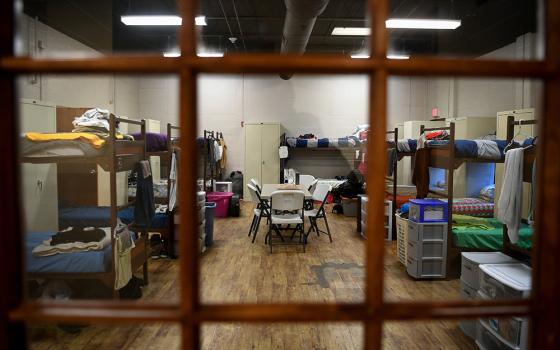Today, we remember and celebrate the lives of those who have gone before us, "that great cloud of witnesses who surround us" (Hebrews 12:1) and support us with their prayers. Of course, there is sadness when a friend or family member dies, but, in the end, it is faith that enables us to surrender our mourning and be joyful in our memories.

| All Souls Day |
| Wisdom 3:1-9 Psalm 23 Romans 5:5-11 John 6:37-40 |
This Wisdom text is quite remarkable in that it exhibits the development of Israel's understanding of death and immortality. Up until around 200 B.C., Jewish believers were of the mind that death was the end of every creature's existence and that only God was immortal (Psalm 90:1-6). Gradually, there came the realization that human beings were blessed with an immortal spirit that survived death. Written around 60 B.C., this pericope clearly says that death is not the end but a passage unto peace in the presence of God.
In today's second reading from his letter to the house churches in Rome, Paul revels in the gift of Jesus. His amazement at such a blessing is contagious. How can we not be equally grateful for the extent of God's love, which, as Paul says, "has been poured out into our hearts"? As proof of this immeasurable love, Christ died for us "while we were still sinners."
Perhaps this truth might encourage those who worry that a loved one who has died was not on good terms with God. With love and mercy, God cherishes and forgives sinners. How can we doubt the magnanimity of One who gave the life of his only Son to reconcile sinners? Rather than worry, believers are urged to leave their concerns in the hands of God and trust in God's beneficent will.
The assurance Jesus offers in today's Gospel will enliven the hope of every believing sinner. "I will not reject anyone who comes to me," promises Jesus. This great love of Jesus, as N.T. Wright has explained, came to a climax on the cross (The Challenge of Jesus, InterVarsity Press, 1999). Drawn together at that moment of sacrifice were all his actions throughout his ministry -- his touching of a leper, his tenderness toward the sick and the bereaved, his tears at the grave of Lazarus.
In all these actions and especially on the cross, we see the deeply human and God-filled Jesus fulfilling his promise: "And when I am lifted up from the earth, I will draw everyone to myself" (John 12:32).
With so many assurances of God's love, our hearts can be at peace as we entrust those who have gone before us to God. In his excellent book Prayers for the Domestic Church, Edward M. Hays advises us that when death comes knocking at our door with its bony fingers, it is always a sacred time and an occasion for the family and the parish family to come together in prayer (Shantivanam House of Prayer, 1999).
We are to invite God into our lives as we recall those we have loved. In prayer, we can be in communion with them. Hays also suggests that the most beautiful tribute we can give to a deceased loved one is not a stone but a living memory that is nourished by prayer, gratitude and ever-deepening affection.
That affection is clearly evident in the jazz funerals of New Orleans. Influenced by African, French and African-American traditions, these funerals achieve a fine balance between grief and joyful celebration. Mourners are led by a band comprised of several different instruments. At first, the band plays sorrowful songs, but after the deceased has been interred, the mood changes. The band plays upbeat songs like "When the Saints Go Marching In" while others are welcomed to join the parade. "A symbol of life, a symbol of death and a symbol of rebirth, the New Orleans jazz funeral salutes a life well lived and the passage of a departed soul into a better world."
Since the Second Vatican Council, Catholic funerals also reflect a more hope-filled and positive attitude. Up until 1967, black vestments were required, and the liturgy was called the Mass of the Dead. Now, white vestments are permitted for celebrating the Mass of Resurrection. The entire congregation gives one of their own a worthy and prayerful sendoff.
When theologian and pastor Dietrich Bonhoeffer was about to be martyred by the Nazis in 1945, he said, "This is the end -- for me the beginning of life." Amen.
[Patricia Sánchez holds a master's degree in literature and religion of the Bible from a joint degree program at Columbia University and Union Theological Seminary in New York.]



